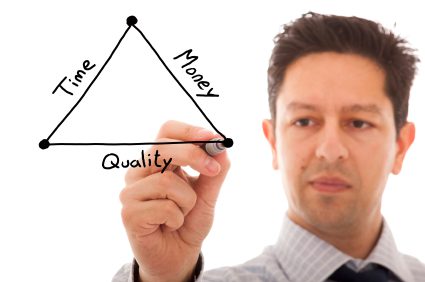Time management is the act of planning, controlling and finally executing specific activities, especially to increase efficiency or productivity. It applies to a wide usage area starting from personal time organization and up to business related time management. For the best results and the biggest efficiency dedicated time management software should be used.
A time management system is a combination of processes, tools, techniques, and methods. There are many books and case studies focusing on these notions.
Personal Time Management
The notion of time management was initially used in business related area but in time the term started to also be used for personal activities. People started to be interested on it when they felt the need to be more organized and more productive. It all happens when you start working all day long and at the end you wonder why you haven’t accomplished much.
Time management methodologies consist of a series of habits and good practices which help you to get more organized. The most used and well known time management methodologies are GTD and ZTD. Getting Things Done (GTD) was created by David Allen and it is based on the following principles:
- do not use your memory to collect your ideas, tasks and arrangements
- do not delay decisions on what to do next
- if you can complete a certain task in less than 2 minutes, do it now
Zen To Done (ZTD) is a methodology based on some GTD principles, but with the focus on deciding which reaction must be taken for an action as soon as possible, and never letting gather up.
However time management skills are especially important for small business people, who often find themselves performing many different jobs during the day.
Project Time Management
Time management is an essential subset for project management and it describes the processes required to ensure timely completion of the project. More exactly according to PMBOK it consists of five main phases:
- activity definition – establish the activities necessary to produce the deliverables of the project
- activity sequencing – establish the dependencies between these activities
- activity duration estimating – estimate the effort of work necessary to complete the tasks
- schedule development – create the project schedule based on the above estimates and on the necessary resources
- schedule control – control the changes made to the project schedule
The most important phase is project planning when the project plan is established. A well defined project plan can significantly contribute to the success of the project. Once established the project plan is used to create the project schedule. All it remains now is for the schedule to be respected as much as possible over time and the deadlines to be met.
Project time management is often confused with the more general term project management. This is a big misconception since project management is much more that just time management. I covers many other areas like scope management, cost management, resource management, quality management, risk management and the list continues.
Time management software is ideal to have your personal life organized. However when it comes to managing projects a better choice is to use a dedicated project management software.





I’m not sure that “Zen to Done” is one of the two best-known time management techniques. I’d have a hard time believing that it’s more well-known than using a Franklin Planner, for example.
@Randy Thank you for your comments. I have to admit that I was not familiar with Franklin Planner until you mentioned it. But I have taken a look at it and indeed it deserves to also be added to the list.